- Home
- Sahara Kelly
Visions of Mistletoe: A Ridlington Christmas Novella
Visions of Mistletoe: A Ridlington Christmas Novella Read online
Visions of Mistletoe
A Ridlington Christmas Novella
Sahara Kelly
Content © 2019 Sahara Kelly
Cover art © 2019 Sahara Kelly
For P&N Graphics
Dedication
I dedicate this novella to the readers who took the Ridlington family into their hearts and their bookshelves.
I am so very grateful for your emails, your reviews, your comments and your enthusiasm for this family; something I shared during the creation of the original novels.
Adding a holiday story has worked now for a couple of years, and I must admit it’s becoming close to being a holiday tradition for me as a writer. So when I realised that despite the other books I have in progress, Christmas would inevitably arrive, I knew I couldn’t let that happen without a brief homage to my favourite Regency friends, the Ridlingtons.
I wracked my brains for story ideas, and as I was rummaging through the “potential plots” file on my external hard drive I ran across an old outline for a story that stuck in my head. I wasn’t sure though...it didn’t seem right.
Then, as luck would have it, I had a conversation with a friend and with one word—boom. The story leapt to life and I was off and running.
So this novella comes with thanks and hugs to all my readers, and one especially large hug to a friend of so many wild years, writer Ciana Stone. She is a person who loves to laugh, gives selflessly of her time and energy, and I could ask for no better friend at my side through this crazy literary roller coaster of ours!
Thanks, Ciana.
And Merry Christmas...
Author’s Note
As we know, mistletoe has been a part of winter festivities for many, many centuries and yes it was used during Druid ceremonies as far as people can tell, although there’s not a lot of concrete information about those mystical folks who took most of their secrets with them.
One thing that has survived through the generations is the belief that any power possessed by mistletoe, no matter what you use it for, is allegedly multiplied when the mistletoe comes from an oak tree. A handy fact you are now free to use to impress people at that Christmas party.
While we’re on the topic of research, I also learned during the writing of this tale that there is an American mistletoe, and an English mistletoe, and you can tell them apart by the shape of the leaves. The American one has the rounded-tip leaves we see in many images, while the English mistletoe has a matching pair of leaves at the end of each little stem. I’m no horticulturist, so feel free to look it up yourself, because this is an awful description of a lovely and evocative little plant.
(And yes, feel free to trot this tidbit out if that party gets excessively boring. It might spark a conversation or two.)
Prologue
Autumn, 1817, Ridlington Chase
“Edmund, may I disturb you for a moment?”
Baron Ridlington set aside his book and looked up at the delightful vision of Hecate, his youngest sister, approaching his favourite spot in the late afternoon sun. “Of course, my dear.” He patted the bench beside him. “Come share this lovely moment. The air is still warm, the colours of the trees are starting to change, and there’s no doubt that winter will be upon us before long. But right now? Perfect.”
He put his arm around her shoulders and hugged her as she took her seat. “And now you’re here, to add that little extra bit of magic.” He grinned at her.
She grinned back. “Funny you should put it like that…”
“Uh oh.”
Edmund knew his sister. A woman gifted—in ways hard to describe. Her mama had been Irish, and also possessed of such gifts, but not as unique as Hecate’s.
“You’ve a prediction for us, then?” he asked, raising a thick eyebrow.
She shook her head. “Not really, no. Although I’m pretty certain I can say Finn, Maeve and I won’t be able to visit come Christmastime, unfortunately. I have a strong feeling that this winter will be a difficult one, so keep that in mind when laying in firewood, that sort of thing.”
“Good to know, thank you.” He nodded. He never took Hecate’s predictions lightly, and something like this could make a considerable difference to many who depended upon Ridlington Chase for their livelihood. “I’ll see that the farmers are told as well.”
“Yes.” She folded her hands in her lap. “But there is something else. Something that I cannot quite see clearly yet, as if there is some time yet before it comes to pass. I’m sure I will know more at some point, but since we are leaving soon, I wanted to at least let you know about the possibility.”
“All right,” he replied. “I’m all ears.”
“It’s about family. Somewhere there’s someone…” she paused.
He waited, knowing that she was seeking the right words to clarify her thoughts.
“Someone is looking for something.”
Edmund blinked. “That’s a rather broad statement, Hecate. I’d venture a guess that at least a thousand people are looking for something at this moment, and that’s just in our county…”
“I know,” she pursed her lips. “It’s more than a little frustrating. A man, definitely. And he’s quite emotional. I can feel anger and sadness. Sometimes utter desolation. I’ve been sensing him for a while, but it’s getting stronger. Perhaps he’s getting nearer? It's not clear at this point.”
Again, Edmund kept silent, knowing she would tell him everything she could even if there wasn't much sense to be made out of it.
“He’s going to start searching, Edmund. He doesn’t know it yet. But he will have to seek what he desires and when he does, he will stir up matters that will surprise you.”
“Um…well…” Edmund digested that obscure and confusing statement. “Should I be doing anything?”
She shook her head, pale blonde curls trembling around her delicate features. She was the youngest Ridlington and the least like her sire, lacking the dark hair and firm brown eyes that characterised her eldest brother, not to mention his distinctively fierce eyebrows. Varying versions of the Baron’s colouring had come through the family—Simon had lighter hair, Letitia the brown eyes, the twins, Kitty and Richard, had the dark hair—and then there was Hecate.
She’d always been unique. And even now, married and with a brand-new daughter sleeping upstairs, she was still his little sister with the strange gifts.
Edmund adored her, even though at this moment she was more than usually baffling.
“You’ll be astounded when you meet,” she said. “It takes an awful lot to disturb your equilibrium these days, but this will do it. On a good level, however. Just remember that when all is said and done, the Ridlingtons will have gained something extra special.”
“Any idea what?” He blinked, as much at sea in this conversation as he’d been in the middle of the Mediterranean on board his ship so long ago. At least there he had a fairly good idea of where he was, as opposed to now, when he had no compass, no stars and no wind to blow him any way at all.
“Joy.”
“Joy,” he repeated.
“Yes, joy. Wondrous and unexpected joy.” She closed her eyes for a moment or two. “It’s all muddled up with Christmas. Mistletoe. Family.”
“Ah.” Edmund leaned back. “Well, those are all good things, yes?”
“Yes,” she smiled, rising to her feet. “And I’ll wager a certain young lady will wake soon, so I’ll let you get back to your book.” She dropped a kiss on his cheek and drifted away, humming a little as she crossed the lawn.
“Give Maeve a kiss from her uncle.” He called after her as she vanished from sight.
“As if I could go back to reading,” he sighed. “Now I’m going to spend the next few days wondering what on earth kind of joy will arrive come December.”
He closed his book and stood. There was only one place to go with his confused questions.
To his wife. To Rosaline.
She knew everything.
Chapter One
“Hell and devil confound it.”
Michael O'Donnell swore luridly as his horse pulled up lame. He was cold, muddy and thirsty, and this was the second horse in as many weeks that had proved unworthy of its purchase price—little though that had been.
For the umpteenth time, Michael yearned for one of his own Irish thoroughbreds, a sturdy mount between his thighs, a creature that would respond to the slightest command either by voice or a light touch on the reins.
And for the umpteenth time a cloud of darkness settled on his shoulders as he remembered—it was now all gone.
Lost to the vicious whim of a parent who’d surrendered to the awful truth about his much-needed firstborn son.
Shrugging, Michael slid from the saddle and examined the weary horse’s hoof. The shoe had cracked and there were several pebbles deeply embedded—it would be a cruel sin to ride this animal further. The Young O’Donnell was many things, but he was not a cruel man. Not to horses, anyway.
Human beings? Well, after these last few months, that was another matter that might well prove fodder for debate.
The road he followed led nowhere in particular; fine with him, since he had nowhere in particular in mind to travel. But an inn would have come in handy at this moment, along with a blacksmith.
Looking around him, he noticed a wraith of smoke in the distance, which—he presumed—indicated life of some sort. Given the scarcity of any better options, he gathered the reins, pulled up the collar of his cloak more snugly around his neck, and started walking.
And, because it was unavoidable, he lost himself in thought.
“You’re no son of mine. Get yourself gone from this house and never come back.”
Would that phrase haunt him for the rest of his days? Brian O’Donnell’s roar of rage still echoed in his ears, even though Michael had been gone now for over half a year.
He paced onwards through the slushy snow, trying to block out the sound of his father’s screams, but to no avail. His mother had been dead less than a day when the storm broke—when The O’Donnell, as he was known to one and all, finally released the anger that had been brewing within him for Michael’s entire life.
For a gentleman to accept a child as his own, even though he had not fathered it, was not unknown. Such things were necessary for the continuation of the lineage—an heir being tantamount to a treasure in the aristocratic way of things. And his father had accepted Michael as his heir since there were no other sons forthcoming from his second marriage, to Michael’s mother. He’d ignored the dark hair that had grown freely on Michael’s head, in direct contrast to the rusty red that ran through the O’Donnell line. He’d also ignored the thick dark eyebrows. The O’Donnells prided themselves on eyes as green as the fields of Ireland they roamed, and Michael had those, at least. But they weren’t enough to breech the wide chasm between the father and the child who bore his name but not his blood.
Upon the death of his mother, a new young wife appeared forthwith. Within a twelvemonth, the birth of a son of his father’s legitimate loins had been cause for a mighty celebration. It had also marked the beginning of Michael’s downfall.
His baby brother had been the recipient of all the affection Michael had never received. The family had reared, tutored, educated and instructed him as the son and heir. Ruefully Michael admitted to himself that the writing had been on the wall even then and he didn’t need his finely tuned intuition to detect it.
Young Liam hadn’t been at fault, even though his attitude had progressed from confused to withdrawn and finally arrogantly aggressive toward his brother. As he grew up, he’d sensed the undercurrents that swirled within O’Donnell Towers, alert to each and every nuance betwixt members of the family. When he reached the ripe age of ten, he had already developed the habit of treating Michael with unpleasant disdain.
But by then, Michael had grown used to being pushed aside, ignored, and excluded.
Had it not been for his late Mama’s sister—a woman with a powerful presence and an ability to deflect the O’Donnell temper—Michael’s life would have been a misery. But she had interceded between him and his father, buffering the currents of distaste, protecting him from the worst of his father’s volatile personality and his young brother’s vicious taunts.
Michael could understand the emotions. It wasn’t hard to see how The O’Donnell would not view him as his son and heir, but as an interloper fathered by another. This awareness did not ease the pain he felt, but as a man he could at least understand.
Some might have negotiated a workable and livable arrangement. Some might have stretched their ingenuity to incorporate such a family, even knowing the relative positions of the heir and the eldest child. Some fathers might even have loved their bastards.
Sadly, Michael knew The O’Donnell was not that kind of parent.
Even armed with that knowledge, he’d been unprepared for his final dismissal. Half a year ago his father had stormed into the room waving a small book that Michael vaguely recognised as his mother’s diary. It was the anniversary of his mother’s death and also a day upon which the maids had been directed to clean out the attics, two events that should not have coincided, but apparently had.
“A filthy Englishman. That’s who sired you, boy. A filthy Englishman. A Baron of the foulest reputation. And to think today I have to pretend to grieve for the death of that—that—whore, your mother.”
Caught by surprise and hearing the vitriol in his father's voice, Michael froze in shock. He knew he’d said something in response, but couldn’t remember what, since his growing temper was declaring war on what little respect he had left for The O’Donnell.
“She admits it. Relishes it, the doxy. It’s all here…” The O’Donnell had thrown the small diary at Michael, hitting him on the shoulder. “I knew you were a mistake from the start. You’ve been nothing but trouble your whole life.”
“Father, that’s unfair…”
“Father?” The old man’s veins had stood out on his forehead as his temper approached apoplectic. “I’m no father to you. You’re no son of mine. Get out of this house and never come back. Find yourself a new name. The O’Donnell’s are no part of your life from now on.”
And there they were again, those heated and angry words that haunted Michael. He had ridden away from the O’Donnell estate with little more than a horse, a frighteningly small purse, and a bag of clothing, vowing never to return.
He’d left Ireland and travelled to England, wandering for several months, using the few coins he had sparingly, and taking the occasional odd job to add more. His only companion was the knowledge that he was now a bastard. A homeless, landless, nameless bastard with nothing to recommend him to anybody.
Finally, he’d chosen a name he felt matched his current state, although it had taken some time for him to get accustomed to it. So it was as Michael FitzDoone he rode through the snow, an easily pronounced variation of two Celtic words, bastard and nobody. There were times he admitted it was a bit of a self-pitying nomenclature, but overall it worked. He had a touch of the Irish lilt in his speech at times even though he tried hard to erase it, but his new name explained his heritage without him needing to explain anything.
New name or not, he was still a lost soul. He had no plans, no destination in mind—in fact there had been one or two moments when he wondered if he should just die and be done with it. Living without hope was every bit as difficult as living without food.
As if in sympathy, pellets of snow began to dapple his shoulders and he sighed. A fitting conclusion to a perfectly miserable day.
He rounded a bend in the lane and stopped s
hort. Here was the source of the smoke…a small Christmas fair, tucked into a fallow field well off the beaten path. The hardiness of the residents showed clearly in the small crowd of visitors, who must have walked or ridden for quite some distance to get here and enjoy a day away from their everyday lives, ignoring the cold and the threat of snow.
Music and laughter assailed his ears and the most delectable smells of good hearty fare crept around his nostrils and made his stomach rumble.
Trying to remember if he’d eaten anything that day, Michael led his horse toward the noise. There must be a blacksmith around somewhere who wouldn’t mind looking at the injured hoof.
Despite the cold, children ran around the few stalls, giggling at their own games while their parents tried their hand at throwing a ball at a target or discussed the finer points of one or two large sows and their litters. It was the quintessential gathering of simple country folk and Michael smiled as he walked through the slush to join the throng.
Tethering his mount to a convenient post, he looked around—just as the skies surrendered to their burden and heavy flakes of snow began to dapple everything around him. He cursed, hoping to avoid dampening his cloak any more than it already was. A tent caught his eye, a simple matter of fabric and a few poles, but it had an open door and candles flickering within. And it would be dry. He cautiously walked inside to see a figure sitting on a stool.
“I apologise for the intrusion. It’s starting to snow…”
“Welcome. Yer here just in time…”
*~~*~~*
He blinked. “In time for what?”
An old woman moved. The darkness shadowed her, but the necklaces and bracelets that festooned her body jingled like the harness of a horse. She sat on the far side of a low table and between them lay some cards on a tapestry cloth that looked like it had seen better days.
Michael squinted at her, trying to discern her features as he waited for an answer. Something disturbed him, unsettling him and making him itch. It was that annoying intuition of his once again. He ignored it and hoped her response would be forthcoming. Soon.

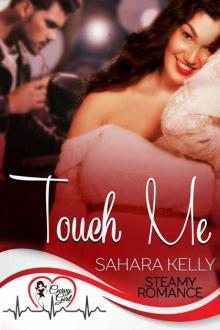 Touch Me: Curvy Girl Steamy Romance
Touch Me: Curvy Girl Steamy Romance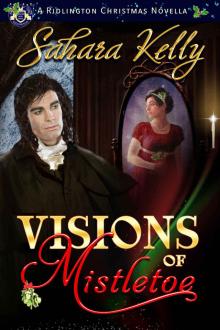 Visions of Mistletoe: A Ridlington Christmas Novella
Visions of Mistletoe: A Ridlington Christmas Novella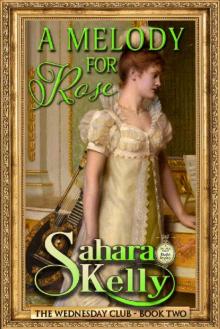 A Melody for Rose (The Wednesday Club Book 2)
A Melody for Rose (The Wednesday Club Book 2)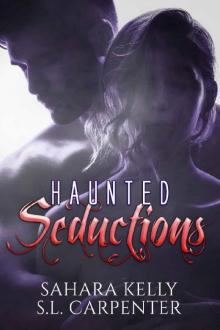 Haunted Seductions
Haunted Seductions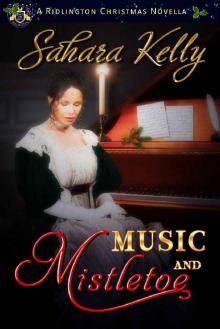 Music and Mistletoe: A Ridlington Christmas Novella
Music and Mistletoe: A Ridlington Christmas Novella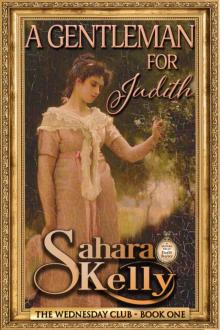 A Gentleman for Judith (The Wednesday Club Book 1)
A Gentleman for Judith (The Wednesday Club Book 1)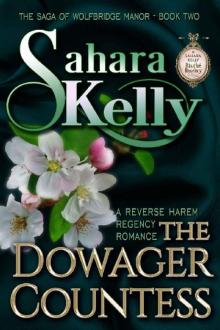 The Dowager Countess (The Saga of Wolfbridge Manor Book 2)
The Dowager Countess (The Saga of Wolfbridge Manor Book 2)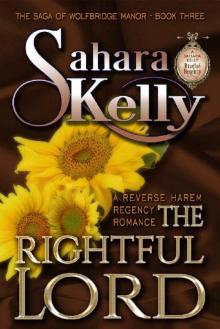 The Rightful Lord (The Saga Of Wolfbridge Manor Book 3)
The Rightful Lord (The Saga Of Wolfbridge Manor Book 3)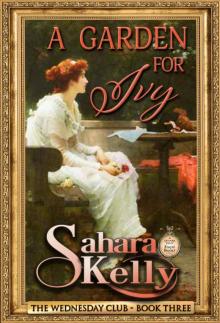 A Garden for Ivy (The Wednesday Club Book 3)
A Garden for Ivy (The Wednesday Club Book 3)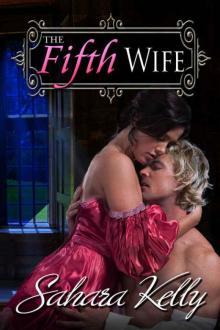 The Fifth Wife
The Fifth Wife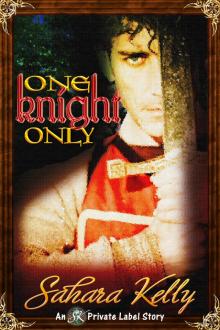 One Knight Only_SKelly
One Knight Only_SKelly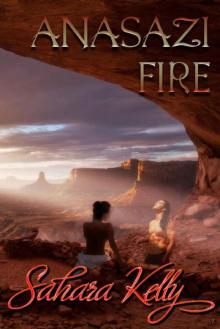 Anasazi Fire
Anasazi Fire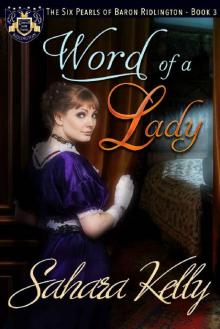 Word of a Lady: A Risqué Regency Romance (The Six Pearls of Baron Ridlington Book 3)
Word of a Lady: A Risqué Regency Romance (The Six Pearls of Baron Ridlington Book 3)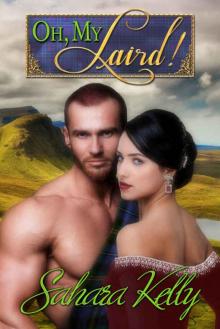 Oh My Laird!: A Risqué Regency Romance
Oh My Laird!: A Risqué Regency Romance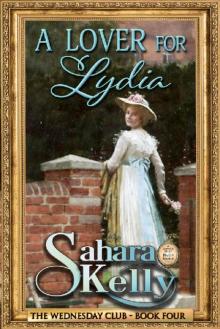 A Lover for Lydia (The Wednesday Club Book 4)
A Lover for Lydia (The Wednesday Club Book 4)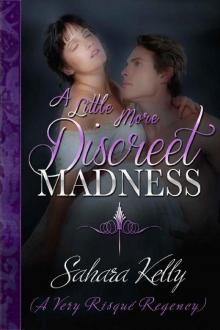 A Little More Discreet Madness: A Risqué Regency Romance
A Little More Discreet Madness: A Risqué Regency Romance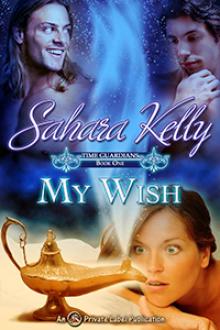 My Wish - Time Guardians Book One
My Wish - Time Guardians Book One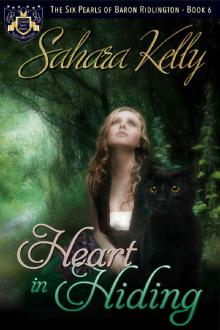 Heart in Hiding (The Six Pearls of Baron Ridlington Book 6)
Heart in Hiding (The Six Pearls of Baron Ridlington Book 6)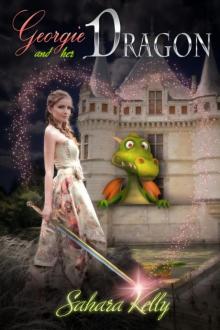 Georgie and Her Dragon
Georgie and Her Dragon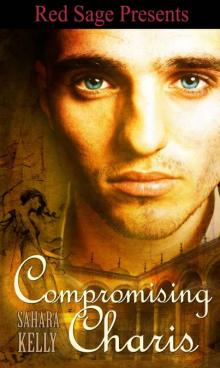 Compromising Charis
Compromising Charis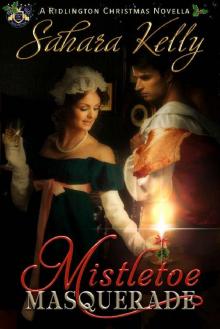 Mistletoe Masquerade: A Ridlington Christmas Novella
Mistletoe Masquerade: A Ridlington Christmas Novella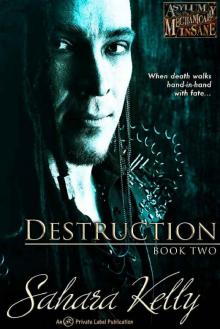 Destruction (Asylum for the Mechanically Insane Book 2)
Destruction (Asylum for the Mechanically Insane Book 2)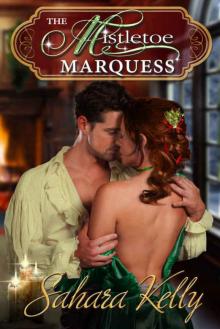 The Mistletoe Marquess: A Risqué Regency Romance
The Mistletoe Marquess: A Risqué Regency Romance Love in the Cards (Whole Lotta Love #1)
Love in the Cards (Whole Lotta Love #1)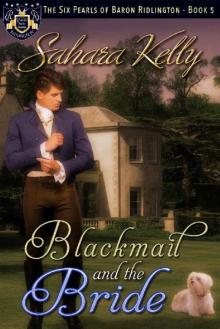 Blackmail and the Bride
Blackmail and the Bride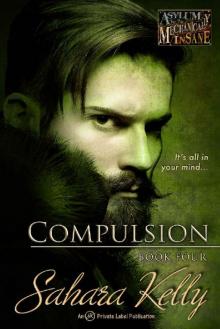 Compulsion (Asylum for the Mechanically Insane Book 4)
Compulsion (Asylum for the Mechanically Insane Book 4)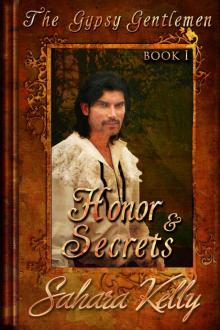 Honor and Secrets: A Risqué Regency Romance (The Gypsy Gentlemen Book 1)
Honor and Secrets: A Risqué Regency Romance (The Gypsy Gentlemen Book 1) A Kink In Her Tails
A Kink In Her Tails So Into You
So Into You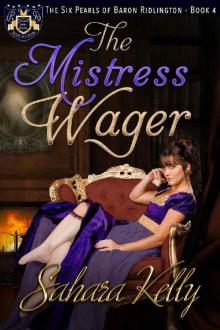 The Mistress Wager
The Mistress Wager The Knights Elemental
The Knights Elemental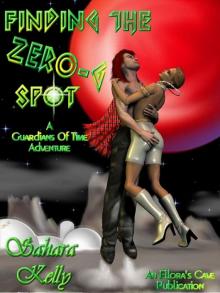 Finding the Zero-G Spot
Finding the Zero-G Spot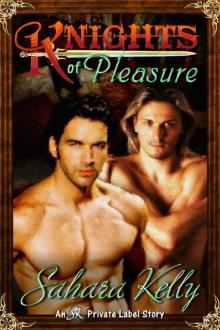 KnightsOfPleasure SKelly_Nook
KnightsOfPleasure SKelly_Nook Touch Me
Touch Me Consent
Consent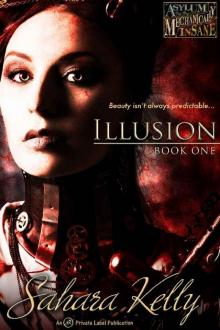 Illusion (Asylum for the Mechanically Insane Book 1)
Illusion (Asylum for the Mechanically Insane Book 1) Endings and Beginnings: A Risqué Regency Romance (The Gypsy Gentlemen Book 3)
Endings and Beginnings: A Risqué Regency Romance (The Gypsy Gentlemen Book 3)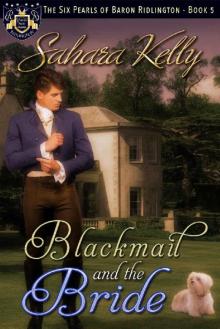 Blackmail and the Bride (The Six Pearls of Baron Ridlington Book 5)
Blackmail and the Bride (The Six Pearls of Baron Ridlington Book 5)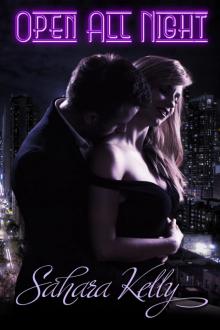 Open All Night
Open All Night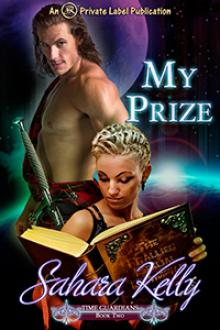 My Prize
My Prize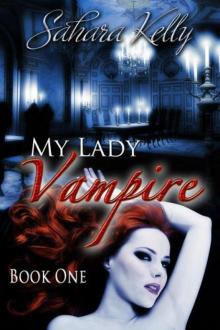 My Lady Vampire
My Lady Vampire For Research Purposes Only
For Research Purposes Only A Whole Lotta Love
A Whole Lotta Love Lady Adalyn (The Saga Of Wolfbridge Manor Book 1)
Lady Adalyn (The Saga Of Wolfbridge Manor Book 1) Love under the Lights (Whole Lotta Love #3)
Love under the Lights (Whole Lotta Love #3)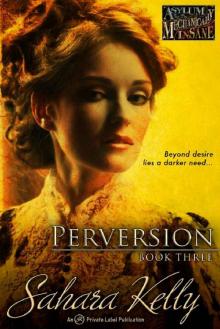 Perversion (Asylum for the Mechanically Insane Book 3)
Perversion (Asylum for the Mechanically Insane Book 3)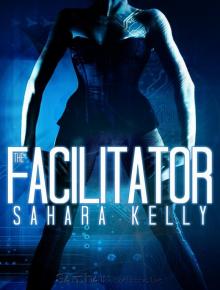 The Facilitator
The Facilitator Game Over
Game Over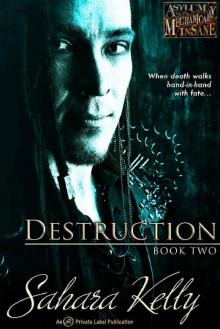 Destruction
Destruction Open House - Working Stiffs Book Two
Open House - Working Stiffs Book Two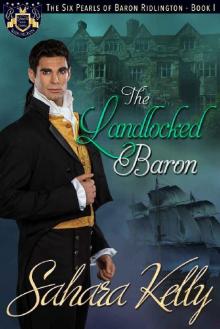 The Landlocked Baron (The Six Pearls of Baron Ridlington Book 1)
The Landlocked Baron (The Six Pearls of Baron Ridlington Book 1)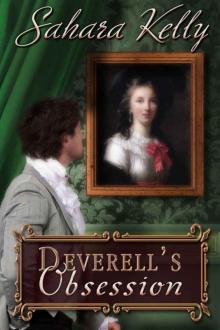 Deverell's Obsession: A Risqué Regency Romance
Deverell's Obsession: A Risqué Regency Romance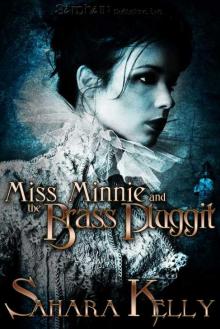 Miss Minnie and the Brass Pluggit
Miss Minnie and the Brass Pluggit Love on the Road (Whole Lotta Love)
Love on the Road (Whole Lotta Love)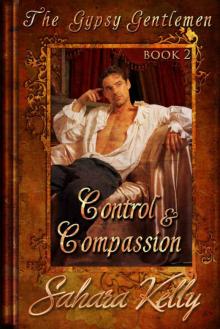 Control and Compassion: A Risqué Regency Romance (The Gypsy Gentlemen Book 2)
Control and Compassion: A Risqué Regency Romance (The Gypsy Gentlemen Book 2)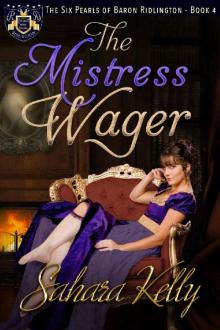 The Mistress Wager: A Risqué Regency Romance (The Six Pearls of Baron Ridlington Book 4)
The Mistress Wager: A Risqué Regency Romance (The Six Pearls of Baron Ridlington Book 4)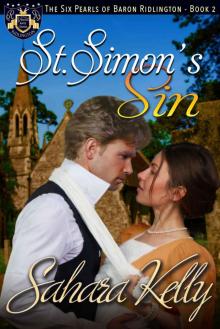 St. Simon's Sin: A Risqué Regency Romance (The Six Pearls of Baron Ridlington Book 2)
St. Simon's Sin: A Risqué Regency Romance (The Six Pearls of Baron Ridlington Book 2) Love on the Road (Whole Lotta Love #2)
Love on the Road (Whole Lotta Love #2)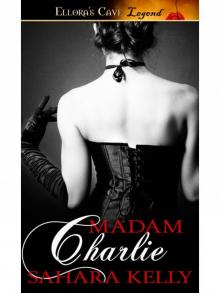 Madam Charlie
Madam Charlie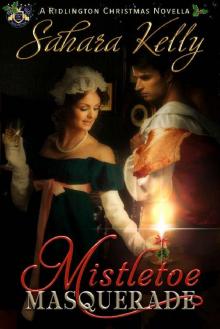 Mistletoe Masquerade
Mistletoe Masquerade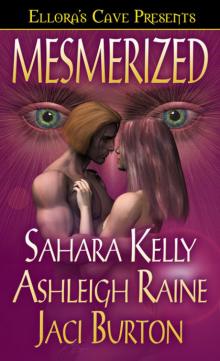 Mesmerized
Mesmerized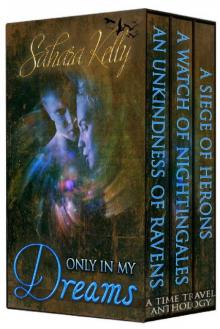 Only In My Dreams: A Time Travel Anthology
Only In My Dreams: A Time Travel Anthology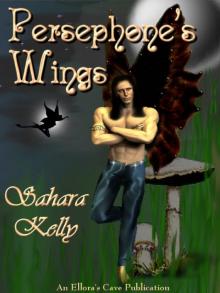 Persephone's Wings
Persephone's Wings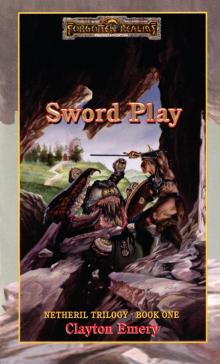 Sword Play
Sword Play The Sun Gods Woman
The Sun Gods Woman Love under the Lights (Whole Lotta Love)
Love under the Lights (Whole Lotta Love) Alana’s Magic Lamp
Alana’s Magic Lamp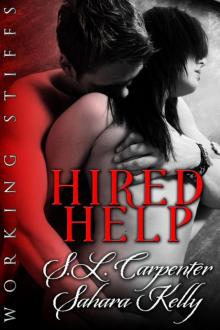 Hired Help - Working Stiffs Book One
Hired Help - Working Stiffs Book One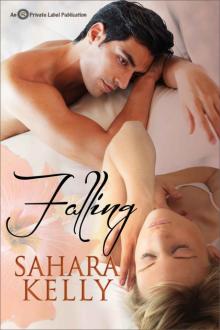 Falling
Falling